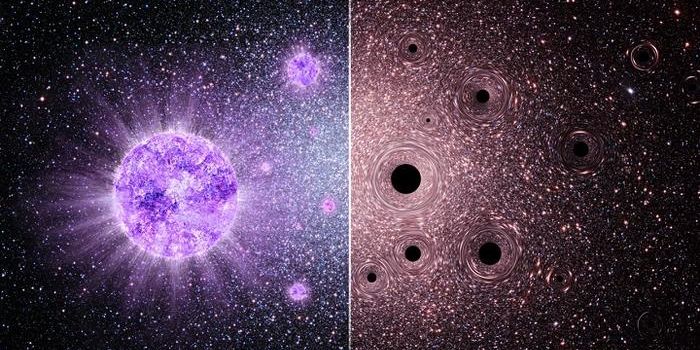What is Antimatter, the "Most Expensive" Substance on Earth?
Physicists have long theorized that our world shouldn't have existed, because the equal amount of matter and antimatter created during the toddlerhood of our universe should have annihilated with each other, leaving almost nothing behind. Thank goodness that was not the case, and our world is dominated with normal matter. Scientists suspect that the reason behind this imbalance may lie in antimatter itself. But what is antimatter?
In physics, antimatter is defined as the counterpart of normal matter, with the same mass but opposite electric charge. For example, a positron is the antimatter equivalent of an electron. It has the same mass and spin as an electron, but a charge of +1 instead of -1.
Antiparticles (such as positrons and antiprotons) can bind with each other to form antimatter (such as antihydrogen), just as ordinary particles bind to form normal matter. For the past a few years, scientists at CERN (European Organization for Nuclear Research) have been producing antihydrogen by slowing downing high energy antiprotons and smashing them into positrons.
Due to its explosive nature (it annihilates when in contact with normal matter) and energy-intensive production, the cost of making antimatter is astronomical. CERN produces about 1x10^15 antiprotons every year, but that only amounts to 1.67 nanograms. To make one full gram (approximately 0.035 ounces) of the antiproton, scientists will need to continue their production at the current rate for another 6x10^8 years, and it will cost them a whopping 2.5x10^15 euros!
Source: Physics Girl via Youtube








